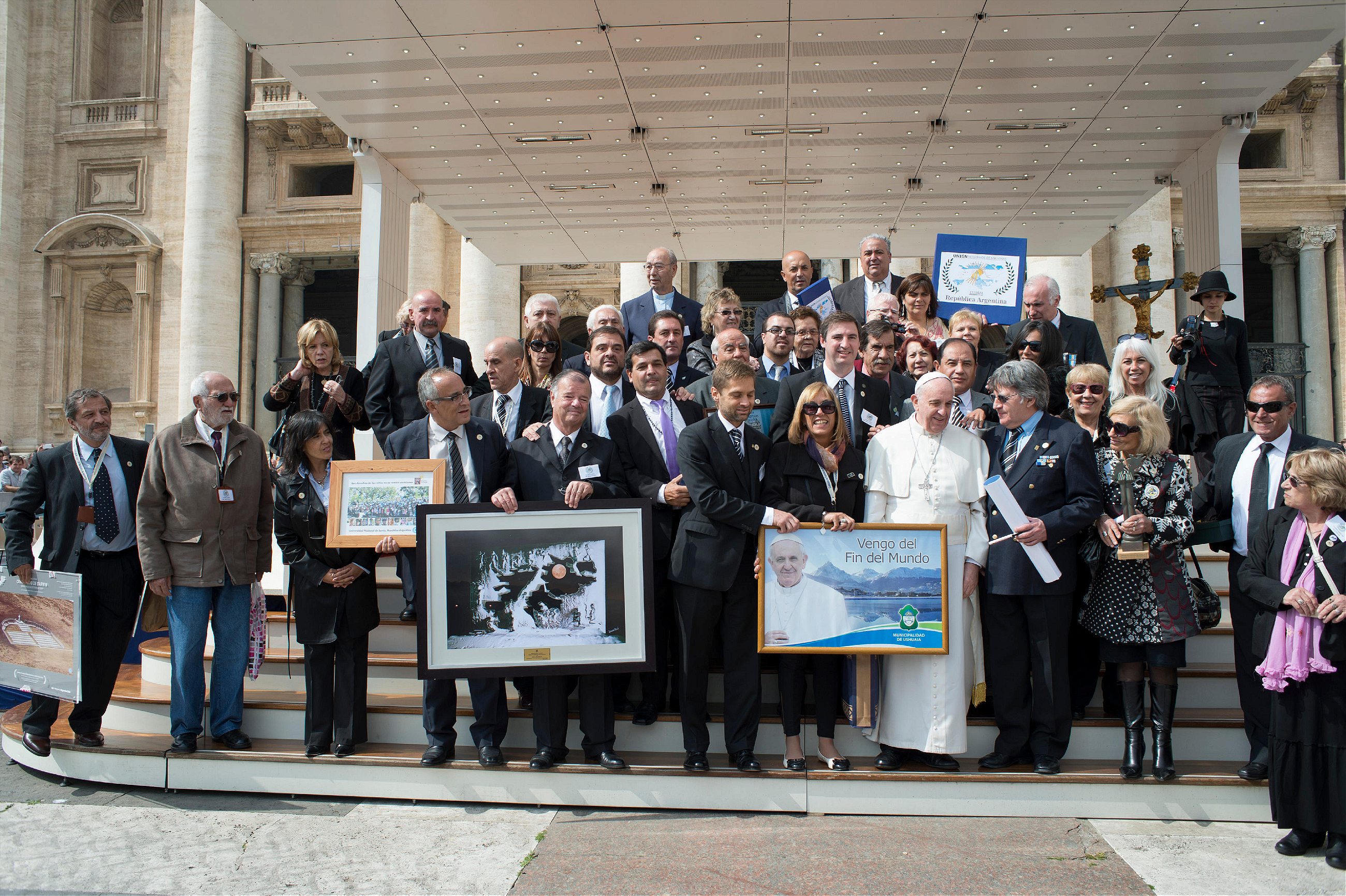A group of Argentine veterans has been carrying the Virgin Mary over two continents in a quixotic spiritual plot to get their beloved islands back.
A child-sized Virgin Mary clasps her hands in prayer and peeks out from her jeweled satin cape, blue and white for Argentina’s flag. A handful of somber Argentine veterans hoist her pedestal and shuffle forward, and she floats through Buenos Aires. The men have marched her through 50 cities and 16 provinces, and on the way she has become famous. She is more than a statue; she is “Our Lady of the Malvinas”—the Argentine term for what the British call the Falkland Islands—and a sign Argentina will eventually rule the British-controlled archipelago.
If this statue—a representation of the Virgin of Luján, Argentina’s patroness—does have spiritual powers, this may be the day she needs to use them. That’s because Queen Elizabeth II is meeting Pope Francis today, April 3, for the first time. And it just so happens this Virgin statue and the veterans who carry her took her all the way to Rome in March so that the Argentine-born Pope could bless the statue, and, hopefully, be reminded of the cause of the veterans. Some of them hope their visit spurs the Pope into raising the question of the Falklands directly with the Queen.
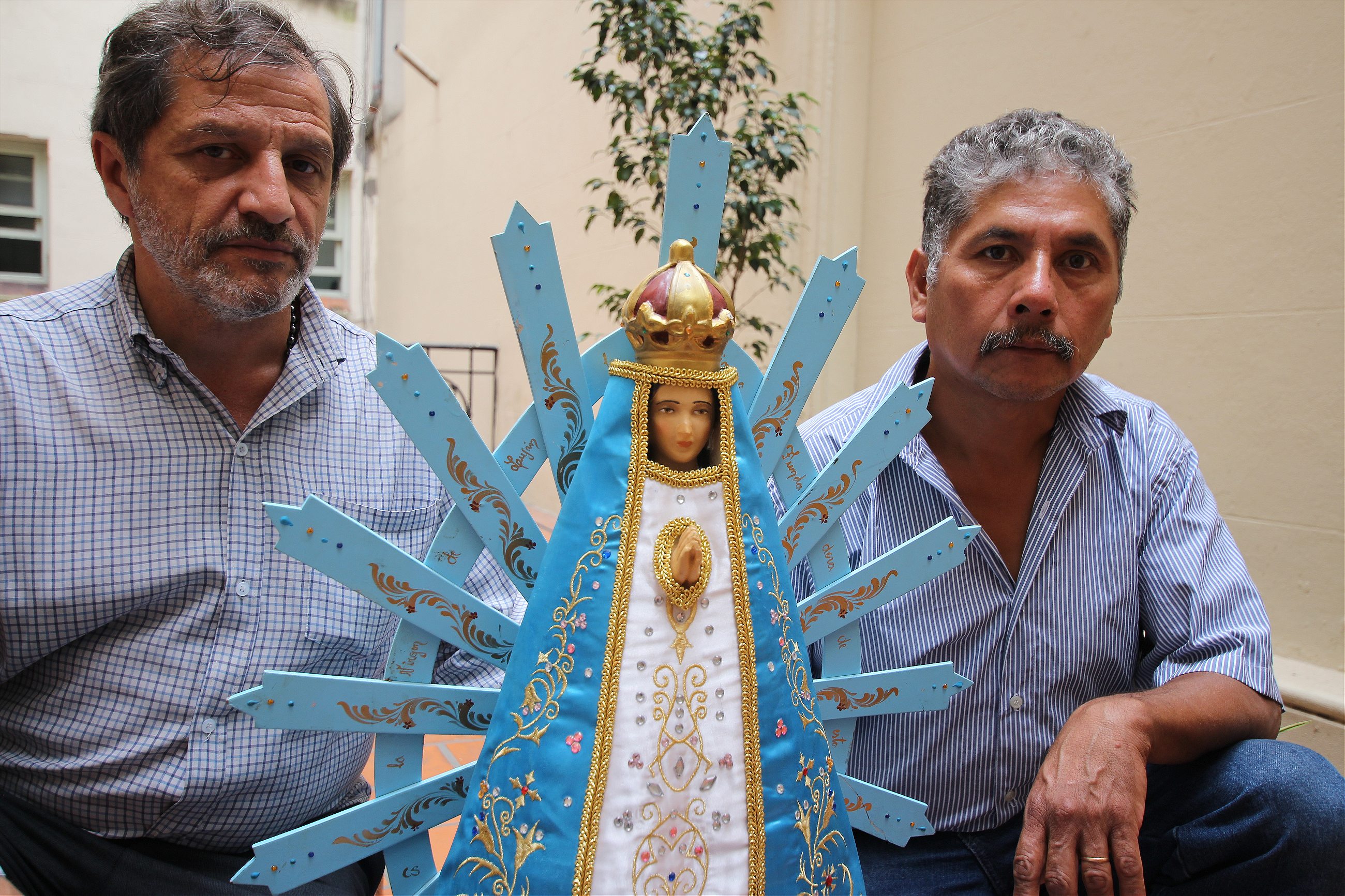
“We [were] not asking him anything, but we know he’ll do it, we have confidence that he will,” says Carlos Bonetti, a veteran of the 1982 Falkland Islands War with Great Britain and President of the Falkland Islands Association. “This is the first time he’s sitting down with her. He knows what he needs to do.”
Pilgrimages are by their nature quixotic, and this one is no different. The UK has shown no signs of budging from the Falklands and even if Francis decided to speak with the Queen as an aggrieved Argentine and not as the leader of a global church, it’s unlikely it would do much good. The Queen’s grandson, after all, was posted there as an RAF pilot in 2012. But still, the veterans march. “Without effort you don’t achieve anything,” says Bonetti.
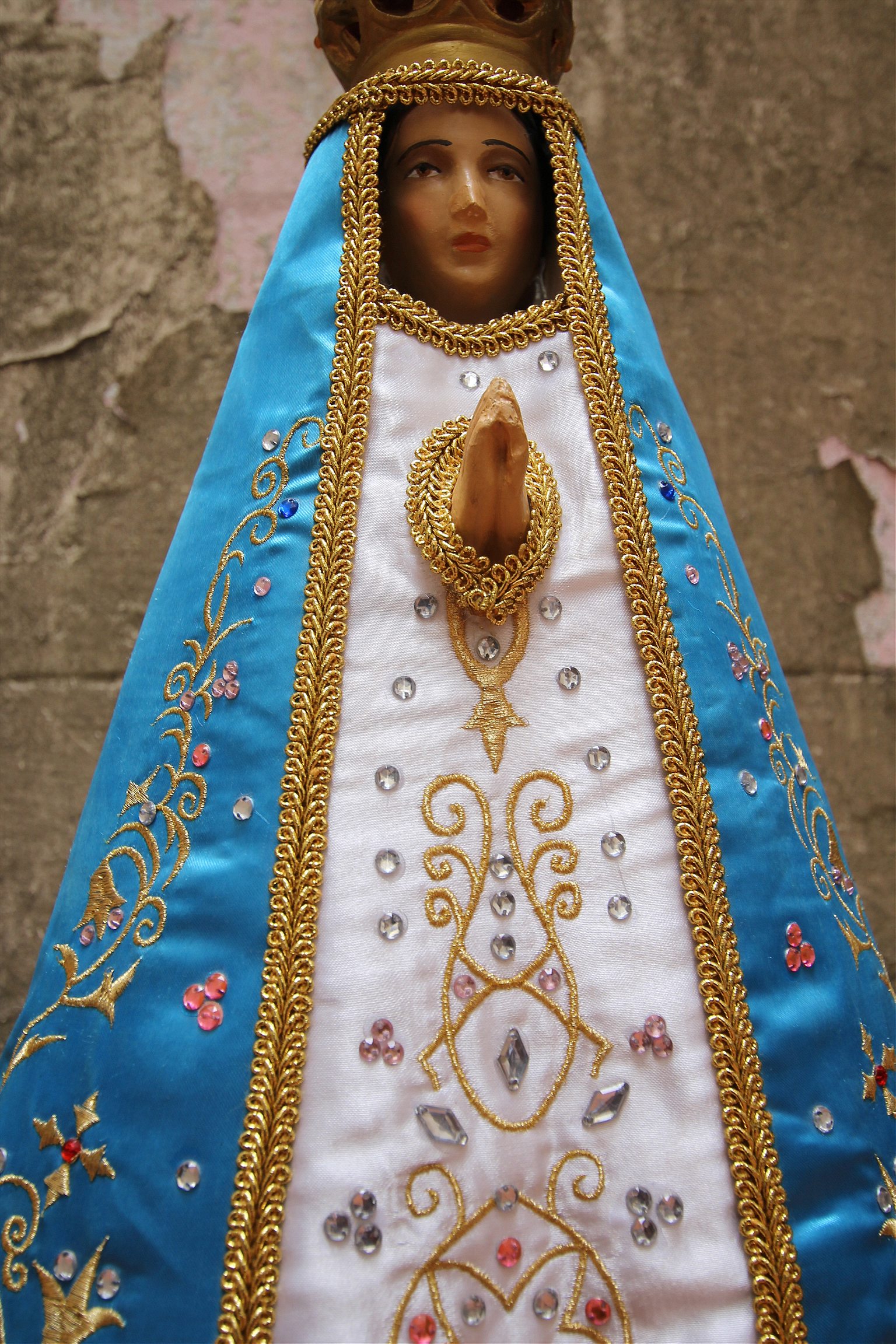
Not all the vets feel certain the Pope will even broach the subject. “We can’t ask him to solve our problems,” Buenos Aires veteran Cesar Gonzalez says. “Maybe he’ll talk to the Queen…They’re both heads of State, he of the Vatican and she of England, and heads of a church, he of the Catholic Church and she of the Church of England. But even as Argentines we can’t ask him that… He can ask for peace.”
The humility of their approach belies the passion of their conviction that the Falklands are the stolen gem of Argentina. For parents of the fallen soldiers, it’s a particularly poignant connection.
“It’s where our children died, so it’s where we feel they stayed,” says Delmira Hasenclever de Cao, whose son Julio Ruben Cao was killed in the war.
Hasenclever, the President of the Commission for Families of Falkland Islands Fallen Soldiers, brought a piece of earth from the Falkland Islands to give the Pope in Rome. She says he gave her a giant hug.
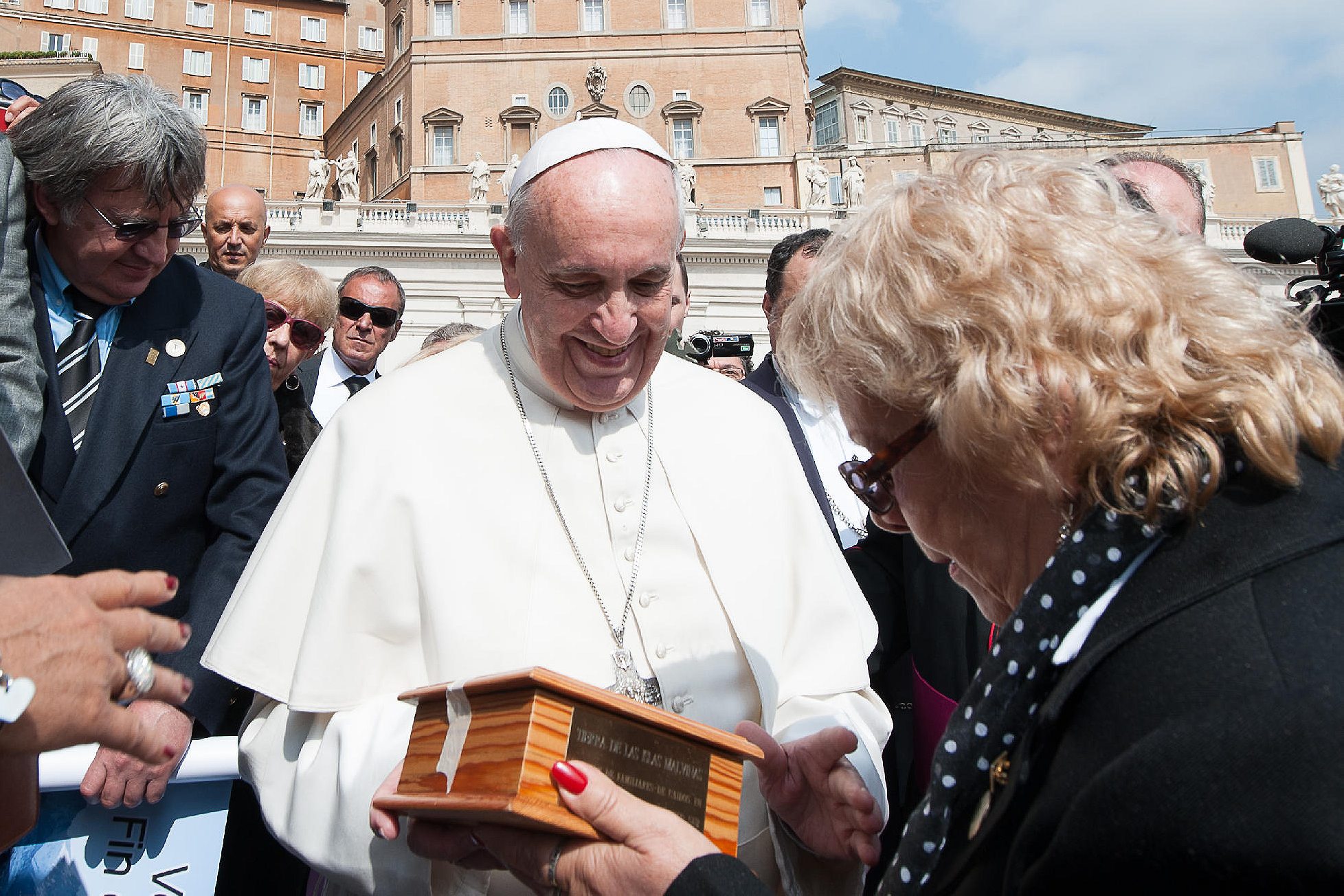
Most Argentines agree that the islands—an archipelago with about 2,500 inhabitants 400 miles off the Argentina coast—are rightfully theirs, since they say indigenous people first inhabited the land and the Argentine government ruled there in the early 1800’s before Great Britain “invaded” in 1833.
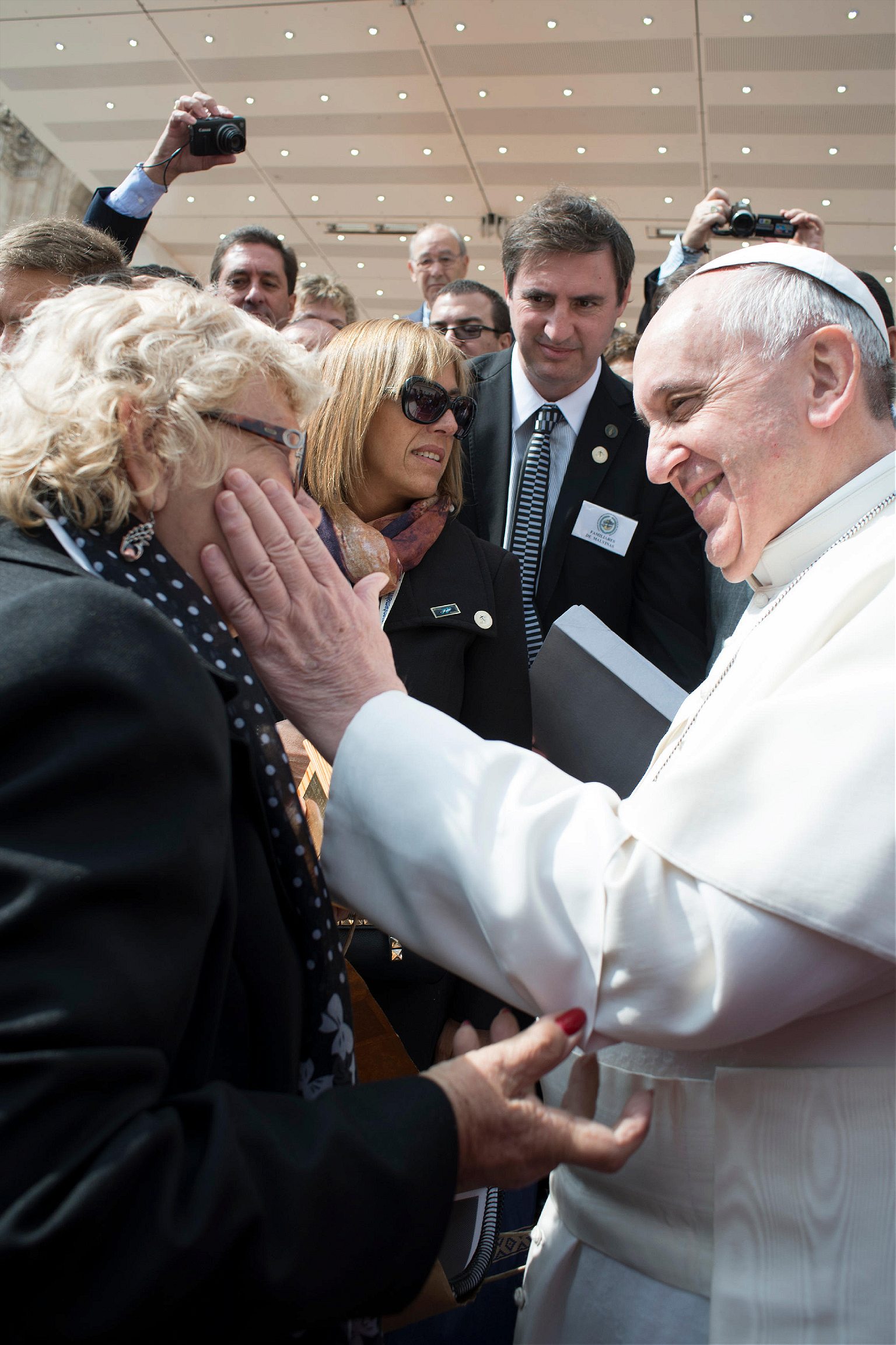
Here college students hold up Islas Malvinas flags on national holiday marches, rock bands advertise Falkland Islands-themed concerts—and President Christina Kirchner has created a whole Falkland Islands mini-bureau this year to renew a push for the land. The government sees the island’s lucrative potential, with oil reserves that could bring in billions of dollars in the next few decades—but to the vets and other citizens, the islands hold emotional significance.
The UK has shown no signs of budging from the Falklands.
“We’ve learned about the Falklands since we were little children… and we watched our comrades die in the war,” says veteran Alberto Anderson, who (along with Bonetti) lives in Ushuaia, the southernmost point in South America, and the closest point to the Falklands. “[Meeting with the Pope] is one more action that helps our end objective: to restore the islands back to Argentina.”
When Pope Francis was Cardinal Bergoglio, he gave a homily on the 30th anniversary of the Falkland Islands War and said that Britain “usurped” the land from Argentina.
“We come together to pray for those who have fallen, sons of the homeland who went out to defend their mother country, to reclaim what was their homeland but that was usurped from them,” he said in the Cathedral of Buenos Aires in 2012.
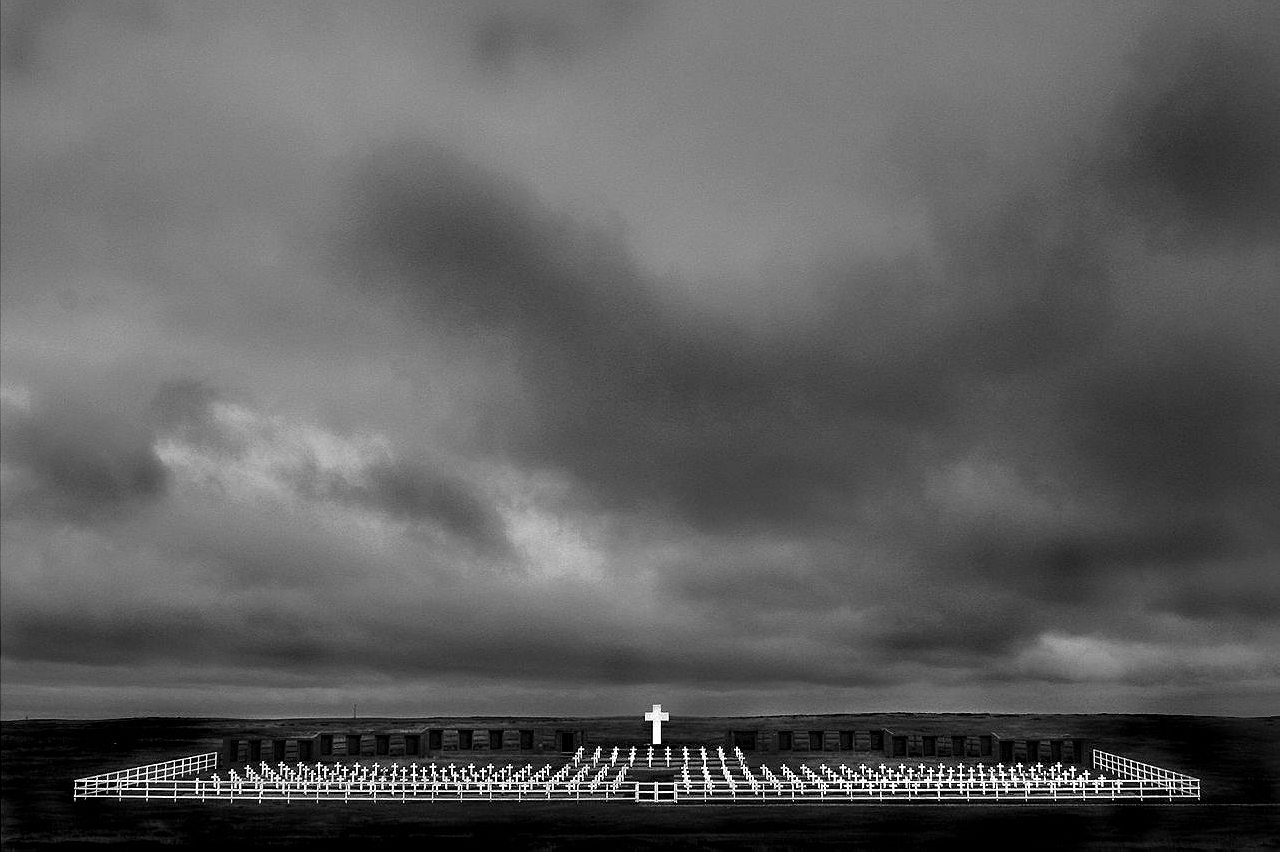
To Great Britain, however—and the Falkland Islands’ UK-backed governing body—Argentina’s claims to the Falklands are ridiculous and based on false history.
As it says on the official government website for the Falkland Islands: “There is no truth to the Argentine claim that a civilian population was expelled in 1833. The people expelled were an illegal Argentine military garrison.”.
And Falkland Islands Legislative Assembly Member Michael Poole tells me in a phone interview that the Falkland Islands residents want to remain British, as proven by a referendum last March in which 1,513 people voted to remain part of the European country, and only three voted against (President Kirchner, for her part, recently called that referendum as “worthless” as the Crimean vote to join Russia).
Both governments have used war memories as a political tool.
“We are a people,” says Poole. “Any discussion on sovereignty would have to involve the people of the Falkland Islands… and Argentina says we don’t deserve that human right.[We] are Falkland Islanders, but British as well.”
Historian Federico Finchelstein, who grew up in Argentina, has written about the Falklands for the New York Times, and now teaches at the New School in New York, says both Argentina and Britain have historical rights to the archipelago—but that both governments have “used war memories as a political tool” to draw voters’ support.
“Both countries should enter direct negotiations over shared sovereignty,” Finchelstein tells me by email. “Including sovereignty in open-ended negotiations would represent a direct change with or without the Pope.”
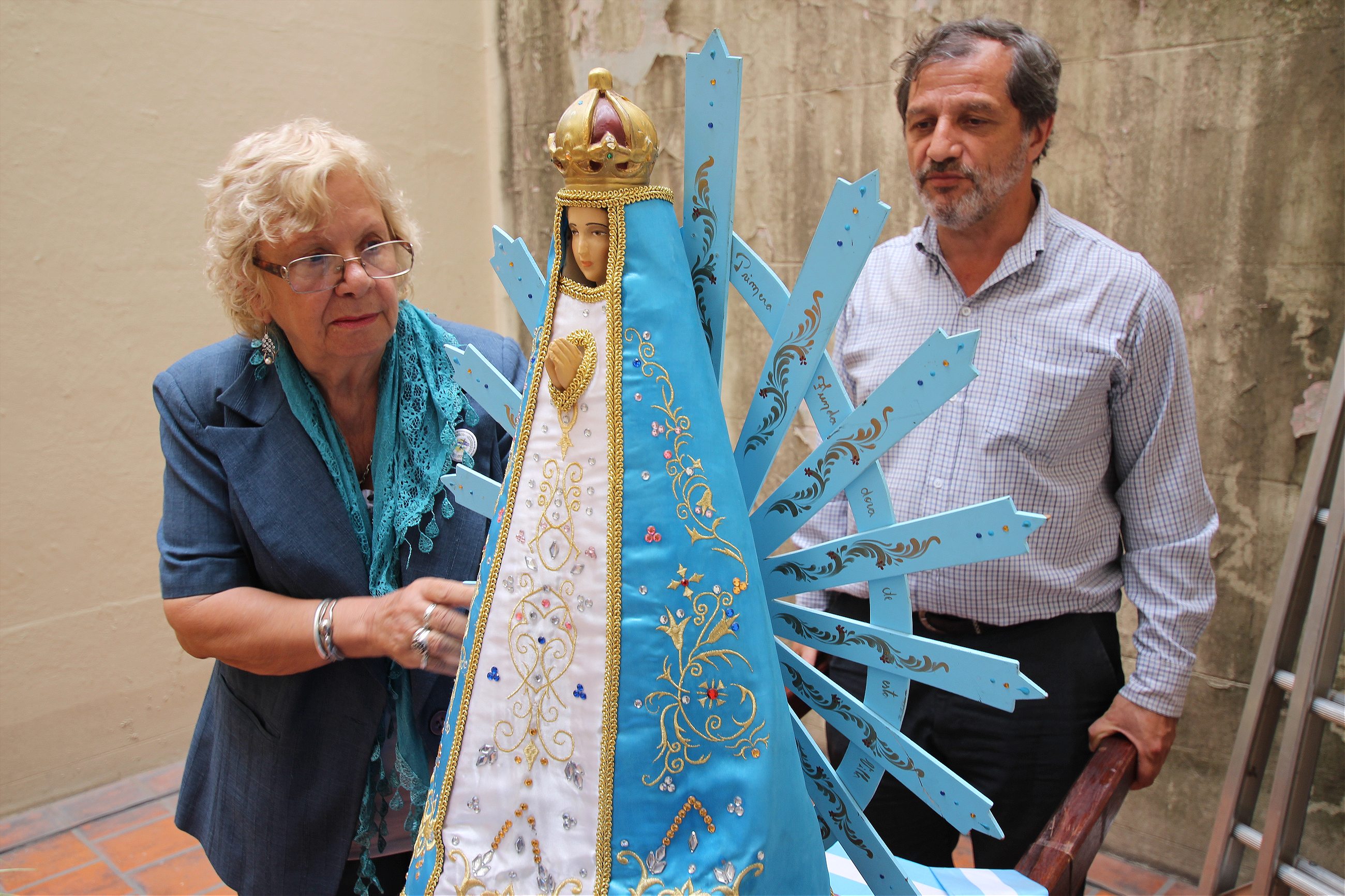
Even if the Pope doesn’t make headway with the Queen today, in his brief audience with the veterans, he already granted them several cherished wishes—including giving them permission to build a special chapel on the Falkland Islands.
“It was marvelous,” Hasenclever says. “He always gave mass when he was a Cardinal on the war’s anniversary, at the Cathedral of Buenos Aires. So he knows our fight of so many years.”
